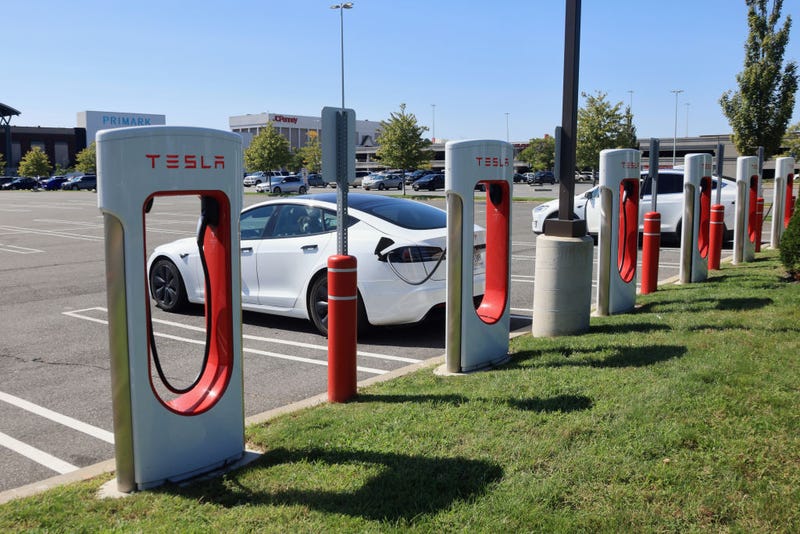
SAN FRANCISCO (KCBS RADIO) – The next time you drive by a gas station, you might want to take a picture. Gasoline pumps could soon be relics of the 20th century as more and more drivers switch to electric vehicles.
For more, stream KCBS Radio now.
However, the transition to zero emission fuels likely won't be easy on EV drivers or gas stations.
While EV drivers save a lot of money, they often spend more time charging up than they would be filling up with fuel. That is, if they can even find a charging station.
Bay Area resident Susan Groves gets up before the sun just so she can juice up her plug-in hybrid at a public charger, which takes much longer to juice up than a fully electric vehicle.
"To come down here and to find it open is a real challenge," she told KCBS Radio. "If you don’t have a charger at home, which I do not, there are very few stations available."
Groves said it takes almost two hours for her vehicle to reach a full charge.
"I feel like I did the right thing moving away from a gas only car," she said. "But it seems to me the planning here is outrageously deficient."
Many EV drivers want to know why gas stations aren't installing chargers.
The short answer is they don't fit their business model.
Tom Robinson, Chairman of Robinson Oil which operates Rotten Robbie gas stations, said their profit margin is much lower for electricity.
He also added that because charging up takes longer than filling up, most urban gas stations just don't have room for lots of plugged in vehicles.
"That may not be a great location – one because it might not be large enough and two, they may not be charging at work," he said. "On the other hand if you happen to be at an interstate location and you're going from here to a vacation spot or a long trip, obviously you need some place that is not at work and not at home and in those instances, it probably makes more sense."
Bay Area resident Brett Hauze loves driving his Nissan Leaf, but said he wishes public chargers were more plentiful and faster. He said he jerry-rigged a device at his house so that he could charge at home.
"Quicker charge and more charging stations would be ideal," he noted.
It's estimated that California will need over a million more public chargers by 2030 to meet the demand from drivers switching to EVs. The state expects to receive nearly 400 million dollars from the federal government to install public chargers over the next five years.
DOWNLOAD the Audacy App
SIGN UP and follow KCBS Radio
Facebook | Twitter | Instagram

